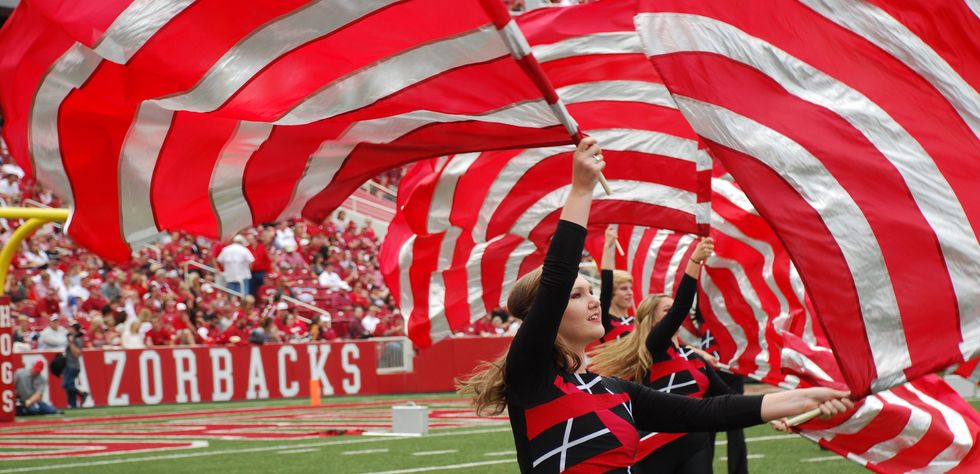When I tell people that I do colorguard for a sport, many people are confused, and have absolutely no idea what it is. For starters, colorguard's technical definition is the physical embodiment of music. but an easier explanation would be a person who marches alongside a band while spinning flags during a parade. Ever been to a Fourth of July Parade, Rose Bowl Parade or even a Memorial Day Parade? If so, then you've probably seen a colorguard group in action. These colorguard groups, or drum corps when a band is included, should be considered as sports, and not just considered a "club" as much more work goes into them than most people expect.To first prove that color guard is a sport, the definition of sport must be clarified. According to Merriam Webster Dictionary, a sport is defined as "an activity involving physical exertion and skill in which an individual or team competes against another or others for entertainment". Colorguard certainly falls under this category, first for the reason of physical exertion.
Colorguard might not have as much physical exertion as say football or soccer that rely heavily on cardio, colorguard is much more related to building and toning muscles. The act of doing various tricks with a 5 pound, metal flag isn't exactly an easy feat. It takes muscle to learn and execute the moves well. Additionally, many drum corps add extra weights onto their poles to reduce the wind from affecting the flow of the flag. It also takes leg muscle to do a roll step, or the type of march that a drum corp uses during parades and field shows. The roll step is done by rolling the weight of a persons body from their heel to their toe while walking. The roll step requires precision, and uses various muscles within the legs. With all of these different muscles, being used, color guard should be considered to be a sport that exhibits physical exertion.
Colorguard is also a team sport, but in its own unique way. When you are a part of colorguard or a drum corp, you essentially have a team, or other people who compete or march with you. However, this is different than traditional team sports which require that teams work together to score points than individually do their own thing. Though colorguard teams or groups do not work together to score points, they do work together to create a routine, and move to create various shapes during a field show, much like a dance team. In fact, colorguard and dance teams are very similar, so if dance teams are considered sports teams, why shouldn't colorguard?
The last part of colorguard that really seals the deal that it should truly be considered a real sport is the fact that many drum corps or high school bands compete. Though not all high school bands compete in competitions, many of them do, and there are even state titles up for grabs. And even though some high school marching bands don't compete, all drum corps compete in competitions like DCI (Drum Corps International) or the colorguard exclusive competition known as Winterguard. These competitions prove that color guard is a sport, as it fits each specific part of the definition of a sport.
Colorguard should certainly be considered a sport because it requires physical exertion and a team as well as various competitions that many groups compete in. Colorguard fills all the categories that are needed by a sport, and is very similar to other sports like dance teams, so why shouldn't it be considered one?








































